Continuing to Fight for Voting Rights
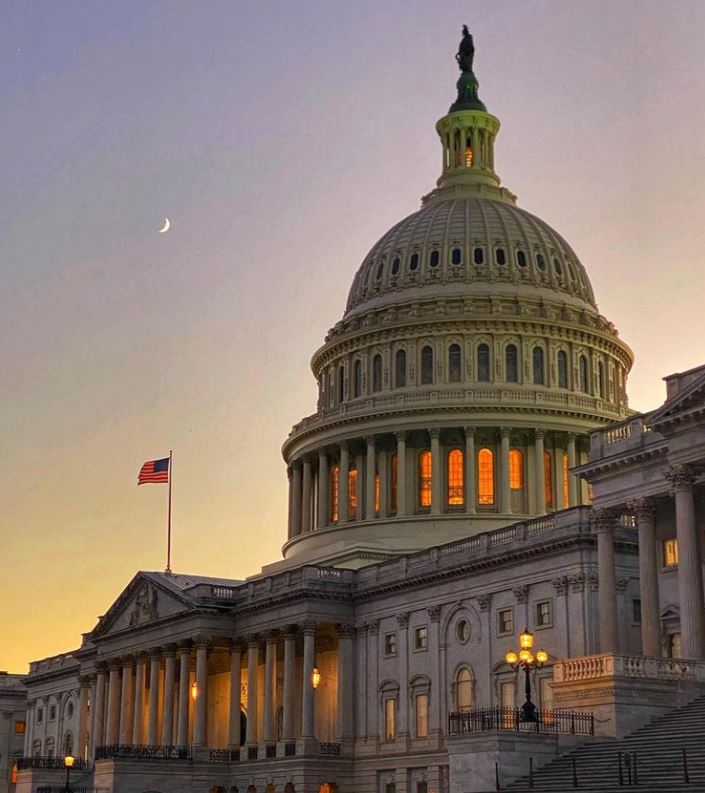
When I was Governor of Maine, I used to have a standing bet with my fellow Independent Governor, Jesse Ventura of Minnesota, about which of our states would have higher voter turnout. As we saw it, that was what our system is all about – the more engagement we drove in our democratic process, the more effectively our government could recognize and respond to the challenges facing our citizens.
Unfortunately, that mindset has shifted over the last few decades. Over the past year, legislatures in 19 states have enacted laws that make it harder for the American people to exercise their right to vote. These laws will disproportionately harm low-income Americans, communities of color, individuals with disabilities, and other historically disenfranchised groups. Instead of responding to the problems facing these voters, these legislatures have prioritized adding new hurdles to the fundamental act of casting a ballot.
To address this growing and serious threat against our democracy, the Senate took up the Freedom to Vote Act and the John Lewis Voting Rights Act for the second time this month. These bills would institute commonsense voting protections to ensure that no state can enact laws infringing on their citizens’ right to vote. Unfortunately, both bills were once again blocked by the Senate minority.
Let me be clear: I have long opposed changes to the filibuster, because I believe that bipartisan work produces better, longer lasting results for the American people. I also believe that today’s annoying nuisance for a member of the majority will become tomorrow’s priceless shield when the balance of power shifts and that member finds him or herself in the minority.
However, the benefits of the filibuster do not outweigh the benefits of a functioning democracy. Of all the checks and balances our Framers built in to the American system, the election is the most important. If that essential democratic check is compromised – if the American people cannot truly hold their leaders to account – then the system doesn’t work.
As these state legislatures use simple majorities to enact partisan laws making it harder for Americans to vote, Congress had a responsibility to exercise its explicit Constitutional power to ‘make or alter’ elections laws and protect access to the ballot box. We repeatedly invited Republican leaders to join us at the table to build consensus on a bill that could address these threats. Time and time again, we were rebuffed. Taking a step back here, you realize that state legislatures are passing voting restrictions on a strictly party-line basis, while we in the Senate are forced to defend our constituents’ access to vote while playing by a different set of rules.
So, after Republicans filibustered both bills for a second time, endangering our very system of self government, I voted for a moderate rules change that would allow for the Senate to debate and pass voting rights legislation. This was not a vote I took lightly, and before the vote, I spoke from the Senate floor laying out my thoughts. If you're interested, you can watch it here.
Despite our best efforts, the measure failed to meet the 50 votes required, and the filibuster stood.
To be truthful, I’m discouraged right now. With the majority of my colleagues dug in against either changing the filibuster or supporting commonsense voting rights protections, it’s hard to see where we go next. But even as I am saddened that these votes fell short, I know that giving up is not an option. Our forefathers would not be deterred from fulfilling the Constitution’s instruction to form a more perfect union. Now it is our turn to pick ourselves up and continue carrying the flame of American democracy forward to the next generation.
Keeping Maine People Warm This Winter

In the midst of a cold Maine winter, there are few things more important than being able to keep your house warm and your loved ones safe. For years, the Low Income Home Energy Assistance Program (LIHEAP) has done just that – providing vital heating aid to thousands of vulnerable Maine households in need.
In 2020, this program provided Maine people with more than $40 million in assistance, serving nearly 33,000 at-risk households. These services have been a lifeline to many individuals and families who would have faced shutoffs or significant debt, not to mention the risks of unsafe indoor temperatures –particularly for households with members who are elderly, disabled, or have young children.
This year, as families continue to feel financial disruptions from the COVID-19 pandemic and heating prices are on the rise, this aid is needed as much as ever. Fortunately, the American Rescue Plan, which passed 50-49 last March, doubled the LIHEAP funding to Maine to help our state get through the winter as we continue to stabilize from the economic impacts of the pandemic. In total, the American Rescue Plan has delivered an additional $4.5 billion in LIHEAP funds nationally, including $55.2 million here in Maine. On top of this, the Bipartisan Infrastructure Bill is investing $680,000 in the program. This will mean more heating assistance for families, seniors, and vulnerable populations during the coldest months of the year.
I hope this aid can help ensure Maine seniors and low-income families don’t have to make tough choices between paying for heating, or putting food on the table. It's why I pushed for the relief to be included in the American Rescue Plan, and worked hard to pass the bill last year.
In the months since it passed, the American Rescue Plan has invested billions to fight the pandemic, expand Maine broadband, support our state and local governments, and keep our small businesses open during tough times. Just this month alone, the aid package has given nine healthcare centers in Maine a total of $23 million to bolster their COVID-19 response, and the University of Maine $1.5 million to support healthcare resiliency training. I'm glad the bill is taking care of Maine people, and look forward to its continued impact on our state.
Standing Up For Seniors – During the Pandemic and Beyond

As one of the oldest states in the nation – and one that’s only getting older – Maine understands better than most the importance of caring for our seniors. We know that our state will only be as successful as our seniors, and as the pandemic has posed new challenges for older Maine people, we have a responsibility to make sure they have the resources they need to stay safe and healthy.
One of the most effective ways to keep yourself and your loved ones safe from COVID is to test whenever you think you may have been exposed. But right now, while private insurers are required to cover the cost of up to eight over-the-counter at-home COVID-19 tests per person, the almost 400,000 Maine people and 61 millions Americans enrolled in Medicare do not have the same coverage – meaning many seniors who are at the greatest risk for a severe case of COVID-19 would have to pay for at-home COVID tests out of pocket. It just doesn’t make sense.
This week, I wrote a letter to the Biden administration urging them to change this policy, and have Medicare and Medicare Advantage cover the same amount of at home COVID tests as private insurers. This change would help Maine seniors keep themselves and their loved ones safe, and slow the spread of the virus. It's a simple step, and one that I believe will save lives.
At the same time, it is critical to recognize that our efforts to support seniors must extend well beyond the pandemic. That is why I have joined my colleague Senator Bob Casey (D-Penn.), Chair of the Senate Special Committee on Aging, to introduce the Innovations in Aging Act to improve critical quality-of-life services and programs for American seniors. The bill would strengthen important programs that support millions of seniors across the country, investing in evidence-based efforts and creating significant opportunities to improve quality-of-life for older Maine people.
Taking this action today will help prepare us for the needs of tomorrow, and fulfil the commitment we have to the generations who came before us.
Showing Off Maine's Shipyards to Senator Jon Tester
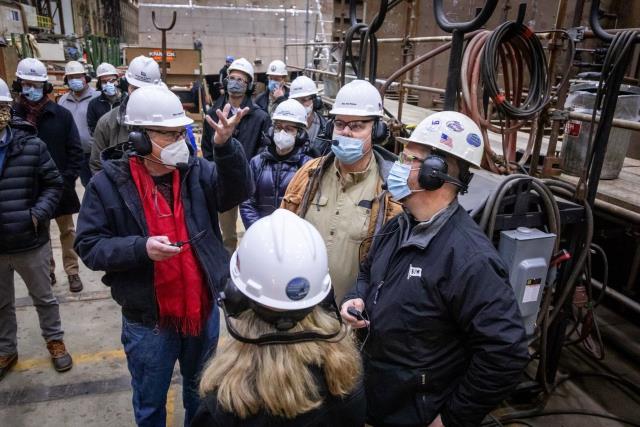
One of my closest friends in the Senate is Senator Jon Tester of Montana; he's a farmer, a fierce advocate for bipartisanship, and he's also the Chair of the Senate’s Defense Appropriations subcommittee – meaning he's the one who writes the checks for Department of Defense projects. Earlier this month, we visited Bath Iron Works (BIW) and Portsmouth Naval Shipyard (PNSY) together so he could see firsthand the excellent work being done by the men and women at these shipyards.
These two shipyards have long been a cornerstone of our national security efforts, building the workhorses of our Navy and providing critical support to keep our sailors safe. As Jon and I toured both facilities during a real Maine snowstorm, he witnessed the resiliency of Maine’s shipbuilders, the importance of their work to our Naval readiness, and the shipyards’ significant and longstanding impact on Maine’s economy.
At BIW, we met with their shipbuilders who make the "best built" ships and toured the yard's impressive production facilities including the Assembly Building, Unit Integration Hall, and the Land Level Transfer Facility. Then, we traveled to PNSY, where Senator Tester and I got a briefing from top yard officials on the work of the shipyard and saw the important modernization efforts at Dry Dock #1 that will allow PNSY to service next generation submarines.
I'm grateful that Jon made the trip this month to see the invaluable efforts of Maine’s skilled shipbuilders for himself. Along with being a good friend, he has long been a leader in supporting America’s national defense, and I look forward to our continued partnership to protect the American public and ensure that our soldiers and sailors have the best-possible tools to complete their missions.
Expanding Access to Telehealth
.jpg)
Throughout the coronavirus pandemic, Maine people have relied on telehealth to safely access vital services from their homes – removing both the burden of long drives and COVID-19 safety concerns. These services have quite literally been lifesaving, especially for seniors, people with disabilities, and those who may not have as much protection from the virus.
But as we look beyond the pandemic, it is important that expansions of telehealth are not rolled back and that Maine people retain access to this critical form of healthcare. That's why this month, I co-sponsored the Telehealth Modernization Act to update the restrictions that have long prevented the nation’s roughly 61 million Medicare beneficiaries from accessing lifesaving telehealth services.
This bipartisan bill would expand telehealth services for Medicare beneficiaries, ensuring that seniors in Maine and across the country retain access to remote home health services during the COVID-19 pandemic, future public health emergencies, and day-to-day life. It simply doesn't make sense to roll back the successes of telehealth when the pandemic is over.
Still, telehealth only works with a good internet connection – which is why we must roll out affordable, high-speed broadband in every Maine community. Earlier this month, the Senate took an important step to make that vision a reality and confirmed Alan Davidson as Administrator of the National Telecommunications and Information Administration (NTIA). It's not an agency that makes many headlines, but they're critically important. Alan will lead the distribution of the historic $65 billion broadband investment included in last year’s Bipartisan Infrastructure Bill.
This is our moment to expand access to affordable, high-speed broadband connections, and I’m confident Alan will help Americans across the country access these connections and services like telehealth that come along with them.
Supporting Our Dairy Farmers
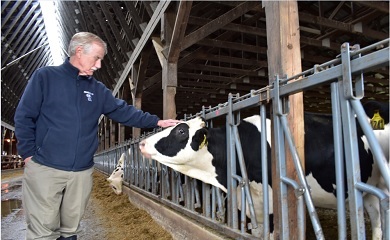
Maine’s dairy farmers have long been a critical part of communities across our state, driving our economy and creating nutritious, high-quality (and delicious) products. These small businesses are often family owned and have created good jobs for generations.
Unfortunately, the last few years have not been easy ones for these local institutions – an unnecessarily complicated pricing formula, changes included in the 2018 Farm Bill, and the effects of an unprecedented pandemic have resulted in the loss of significant revenues for many Maine farms. We need to do more to support our dairy farmers, and that starts with reevaluating how we price milk and giving dairy farmers a better seat at the table. This is why I’m cosponsoring the Dairy Pricing Opportunity Act to promote fair, less complicated dairy pricing for farmers.
This bill would require the U.S. Department of Agriculture (USDA) to begin holding Federal Milk Marketing Order (FMMO) hearings by this summer, giving milk farmers like those across our state a say in how milk is priced. It won't solve every issue our farms face, but it's a start, and one I hope will make a significant difference for the families and communities who rely on the dairy industry.
January Policy Update
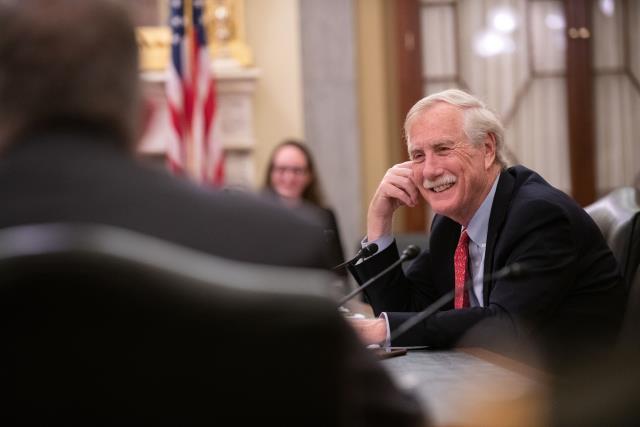
As a reminder, you can read more on my regularly updated press release page at king.senate.gov. Here are some other priorities I’ve been working on:
- Improving harbor infrastructure. Thanks to the Bipartisan Infrastructure Bill, Maine will be receiving $18,455,000 to dredge four harbors in Ogunquit, Scarborough, Milbridge, and Bar Harbor. This work will help address significant safety and navigational concerns for commercial fishermen as well as recreational boaters. Read more HERE.
- Alleviating the bus driver shortage. In response to a serious shortage of school bus drivers across Maine, the Congressional delegation is pushing the U.S. Department of Transportation (DOT) to take steps to safely address the urgent need for additional drivers. Read more HERE.
- Fighting the opioid crisis. In a hearing of the Senate Armed Services Committee I urged a top Pentagon nominee to rethink their strategy for stopping illegal drug shipments from entering the country and evaluate the Department of Defense’s inadequate response to the invasion of drugs that are killing nearly two Maine people a day. Read more HERE.
- Supporting aquaculture training. The Gulf of Maine Research Institute will be receiving $500,000 from the U.S. Department of Agriculture (USDA) to establish a comprehensive Maine aquaculture workforce training program that will help students pursue careers in the growing field. Read more HERE.
In The News
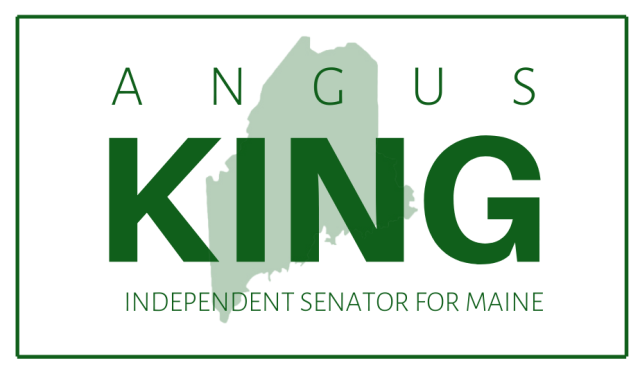
Thanks for subscribing to my monthly newsletter! I would love to hear your ideas for how we can make Maine and our country a better place. Please feel free to reach out with any questions, comments, or concerns by visiting: https://www.king.senate.gov/contact —we look forward to hearing from you.
***PLEASE NOTE***
Due to the impacts of COVID-19, my staff in Washington, D.C. are working remotely – but we’re still at work, ready to help you navigate any challenges you’re facing during this challenging time.
All the best, and stay healthy!

To unsubscribe to this e-Newsletter click HERE.
|